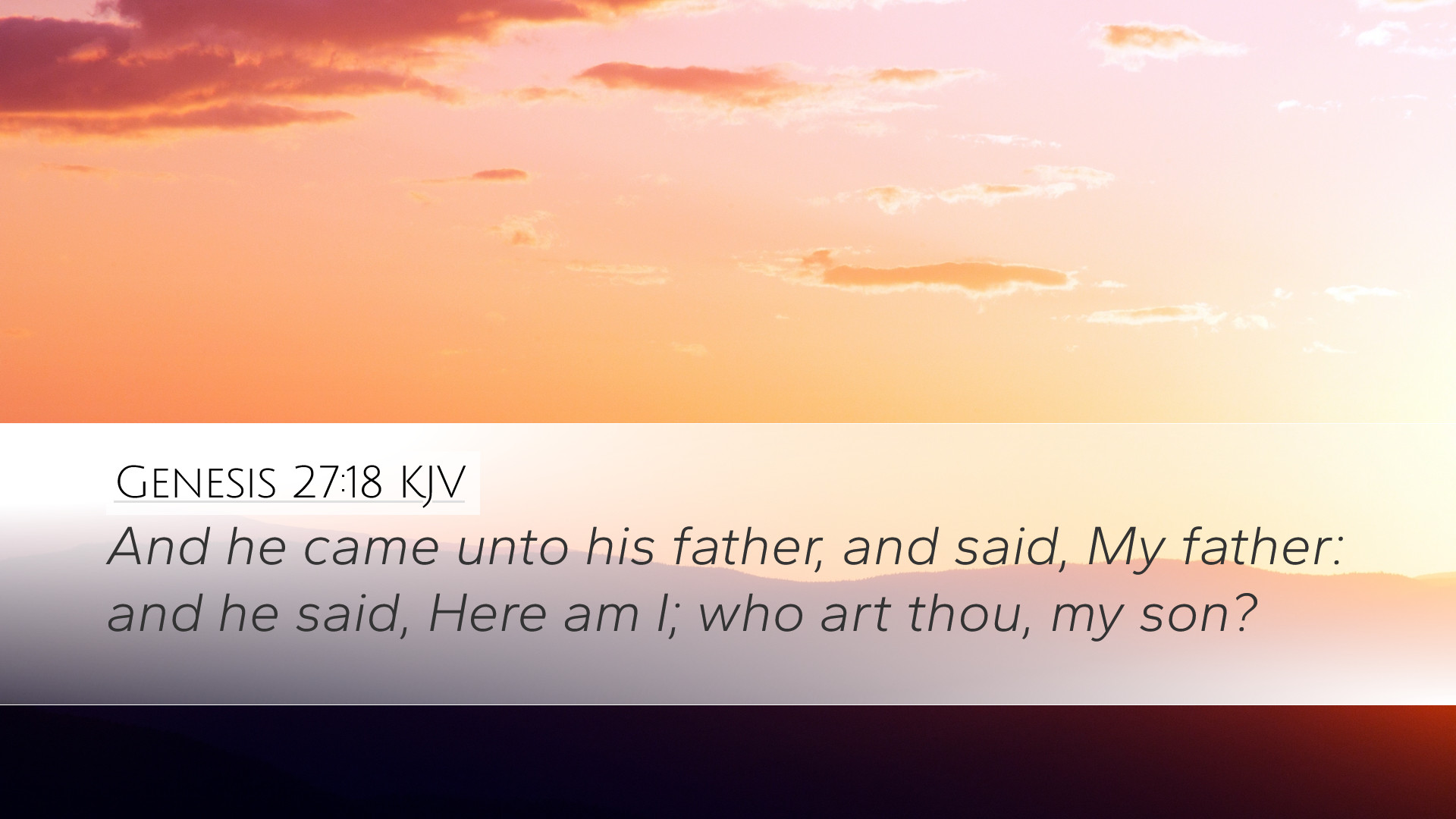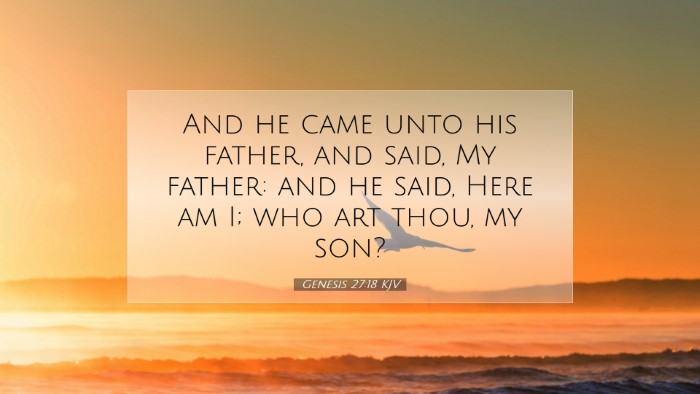Commentary on Genesis 27:18
This pivotal verse relates to the moment when Jacob approaches his father Isaac to receive the blessing intended for Esau. This passage encapsulates themes of deception, family dynamics, and the sovereign will of God as they unfold in the narrative of the patriarchs.
Historical and Theological Context
Genesis 27:18 states:
"And he came unto his father, and said, My father: and he said, Here am I; who art thou, my son?"
This interaction sets off a series of events that showcase the complexity of the relationships within Isaac's family and highlights significant theological issues, such as divine election and providence.
The Role of Deception
Matthew Henry emphasizes the significance of Jacob's approach to Isaac. Jacob, motivated by his mother Rebekah's scheme, exemplifies the lengths to which one might go to obtain what they perceive as God's blessings. Henry notes that Jacob's actions may spark ethical discussions surrounding the nature of deception in familial relationships.
Jacob's Character
Albert Barnes highlights the duality of Jacob's character. While Jacob is characterized as a "plain man, dwelling in tents" (Genesis 25:27), his actions in this passage reveal a cunning side. This paradox invites a closer examination of human nature and the moral complexities we face.
Divine Sovereignty
Both Adam Clarke and Matthew Henry point out that despite the deception, God's sovereign plan is at work. Clarke notes the prophetic declaration made before the twins’ birth: "the elder shall serve the younger" (Genesis 25:23). This prophecy serves as a backdrop to the events of Genesis 27, suggesting that while human actions may deviate from ethical norms, they cannot thwart divine purposes.
Human Agency vs. Divine Will
This leads to a critical theological discussion about the intersection of human agency and divine will. While Rebekah and Jacob plan and execute their scheme, God’s overarching plan for the lineage of Israel remains intact. The paradox of human free will and divine predestination invites deep reflection for theologians and scholars alike.
The Family Dynamics
The narrative illustrates profound family divisions. Isaac favors Esau, while Rebekah favors Jacob. Henry discusses the familial discord as a consequence of favoritism, which ultimately results in a rift that affects future generations. This element of the story stresses the importance of unity and Godly love within families.
Lessons for Modern Readers
- Integrity in Relationships: The deceptive actions of Jacob serve as a reminder of the importance of honesty in our dealings with others.
- The Consequences of Favoritism: The favoritism displayed by Isaac and Rebekah led to lasting repercussions, illustrating how parental biases can affect children's lives.
- Trust in Divine Providence: Even when we face tumultuous times, we can recognize that God is in control, working through our shortcomings and failures.
Conclusion
In summary, Genesis 27:18 serves as a crucial moment in the overarching narrative of the patriarchs. By integrating insights from Matthew Henry, Albert Barnes, and Adam Clarke, we gain a richer understanding of the complexities of human behavior, the seriousness of familial relationships, and the ultimate sovereignty of God. This verse invites us to reflect on our own lives, encouraging integrity, unity, and faith in God’s divine plan.


